-
Nicaragua and China break ground on landmark Solar project to power water access and energy sovereignty
Nicaragua, with Chinese financing, launches its largest solar plant to date—powering water systems, cutting energy costs, and deepening South-South cooperation on infrastructure for social good.
-
Under Trump, NED to continue weaponizing “democracy” in Venezuela, Nicaragua and Cuba
The National Endowment for Democracy has had project funding reinstated by the Trump administration.
-
Why Brazil opposes Venezuela’s BRICS membership
The 16th Summit of the BRICS organization is taking place this week in the Russian city of Kazan. President Nicolás Maduro was invited by the Russian president himself, Vladimir Putin, at the beginning of August, and is attending with a Venezuelan delegation.
-
170 years of U.S. aggression against Nicaragua
On July 19 Nicaragua will celebrate the 45th anniversary of the Sandinista revolution.
-
We are all Nicaragua: The sexual diversity community
(Becca Renk has lived in Ciudad Sandino, Nicaragua, for more than 20 years, working in sustainable community development with the Jubilee House Community and its project, the Center for Development in Central America. Becca coordinates the Casa Benjamin Linder solidarity project in Managua.)
-
From World War II to Gaza: U.S. Labour opposition to war and fascism
To understand the growing support within union ranks for an end to unconditional U.S. military and financial support for Israel in its conduct of a brutal war, it is important to look back at the legacy to which the UAW statements refer.
-
NPR falsely claims its reporter is the only one to visit Nicaragua
NPR began its report “A Rare Look Inside Locked-Down Nicaragua” (9/10/23) with the demonstrably false claim that Nicaragua has “kept all foreign journalists out for more than a year.” This led into a harrowing story of how its reporter arrived in Nicaragua… and reported without incident.
-
Biden has relaunched Reagan’s murderous war against Nicaraguan Democracy–how many is he willing to kill to win?
When CIA-trained terrorists tried to overthrow the Sandinista government in the 1980s, the left erupted in protest. Now the left is cheering for the CIA.
-
The Nicaraguan Coup Attempt: How Peace Was Restored and What Has Happened Since
This final article, covering the period from mid-July to the present day, shows how the coup was defeated and what happened in the aftermath.
-
Burkina Faso’s new president condemns imperialism, quotes Che Guevara, allies with Nicaragua, Venezuela, Cuba
Burkina Faso’s new President Ibrahim Traoré has vowed to fight imperialism and neocolonialism. Pledging a “refoundation of the nation”, invoking revolutionary leader Thomas Sankara, and quoting Che Guevara, his government has allied with Nicaragua, Venezuela, and Cuba.
-
The attempted coup in Nicaragua in 2018: Why support for it collapsed
Of course, the accepted history of the coup attempt, as told by the U.S. government, international bodies such as the UN Human Rights Council and most of the media, is that nearly all the victims were protesters, mainly students, killed by police or by Sandinista “paramilitaries”. The truth is far more complicated; people on the ground, especially those living in the places most affected, became increasingly aware of the opposition’s intentions.
-
U.S. legally owes Nicaragua reparations, but still refuses to honor 1986 Int’l Court of Justice ruling
37 years after a 1986 International Court of Justice ruling, the United States still refuses to pay Nicaragua the reparations it legally owes. Today, the Nicaraguan government is demanding that the United Nations take action.
-
How “peaceful protests” in Nicaragua became an attempted coup
Five years ago, Nicaragua was subject to a violent insurrection that lasted from April through July, 2018. In the second of four articles, we look at how initial support for the coup relied on widespread use of social media.
-
NicaNotes: The experience of Nicaragua in managing the Covid pandemic
Nicaragua, the third poorest country in Latin America, has a population of approximately 6.7 million people but has the most extensive and well-equipped public health system in Central America.
-
Nicaragua: What we learned about agroecology
“Why did we choose to study in Nicaragua? Hunger, poverty, and illiteracy are major issues plaguing much of the world, and climate change is one of the greatest threats to humans on the planet. Nicaragua is setting an example for sustainable development that addresses all these issues.”
-
So much lying from the International Monetary Fund: The Fifteenth Newsletter (2023)
Remarkably, during her visit to Ghana in late March 2023, U.S. Vice President Kamala Harris announced that the US Treasury Department’s Office of Technical Assistance will ‘deploy a full-time resident advisor in 2023 to Accra to assist the Ministry of Finance in developing and executing medium- to long-term reforms needed to improve debt sustainability and support a competitive, dynamic government debt market’.
-
Black people used to attack revolutionary governments
The question of how Black people fare in a particular country can be a legitimate issue or a ruse used in the furtherance of U.S. regime change plots.
-
Five years ago in Nicaragua: A coup attempt begins
In the first few months of 2018, Nicaragua hardly appeared to be a strong candidate for an attempted coup. Daniel Ortega’s government had an 80 per cent approval rating in a poll a few months earlier.
-
The United Nations is being used by the U.S. in its Propaganda War against Nicaragua
While the United States pays little regard to the human rights of many of its own citizens, it manifests intense interest in those of countries that it regards as its enemies.
-
U.S. invites authoritarian far-right regimes to ‘Summit for Democracy’
The Joe Biden administration invited numerous authoritarian far-right leaders to the U.S. State Department’s so-called “Summit for Democracy”, including Israel’s Benjamin Netanyahu, Poland’s Andrzej Duda, India’s Narendra Modi, Italy’s Giorgia Meloni, and Pakistan’s coup regime.

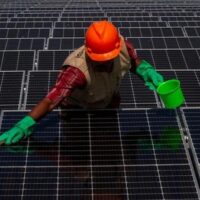
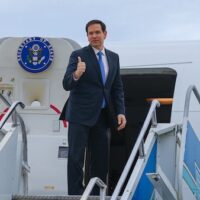
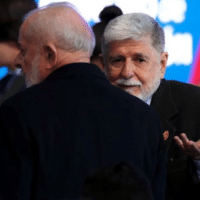
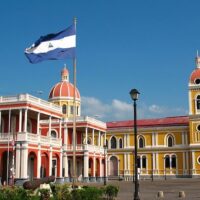

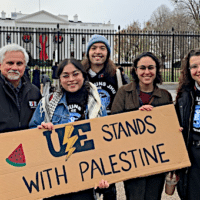
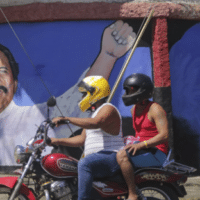
![[Source: mundonuestro.mx]](https://mronline.org/wp-content/uploads/2023/09/Screenshot-2023-09-18-at-124125-PM-200x200.png)
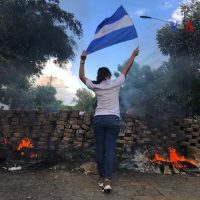
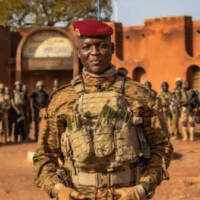
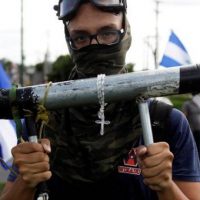
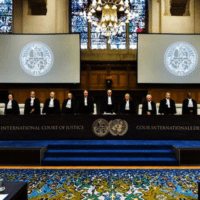
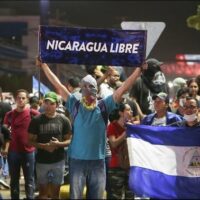
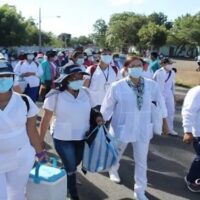
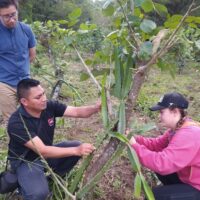

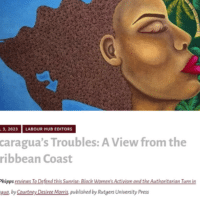
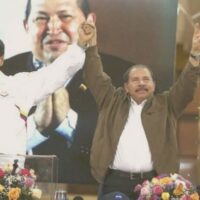
![Masked protesters backed by the CIA who were part of 2018 coup plot against Nicaraguan President Daniel Ortega. [Source: idcommunism.com]](https://mronline.org/wp-content/uploads/2023/04/Screenshot-2023-04-04-at-90503-AM-200x200.png)
